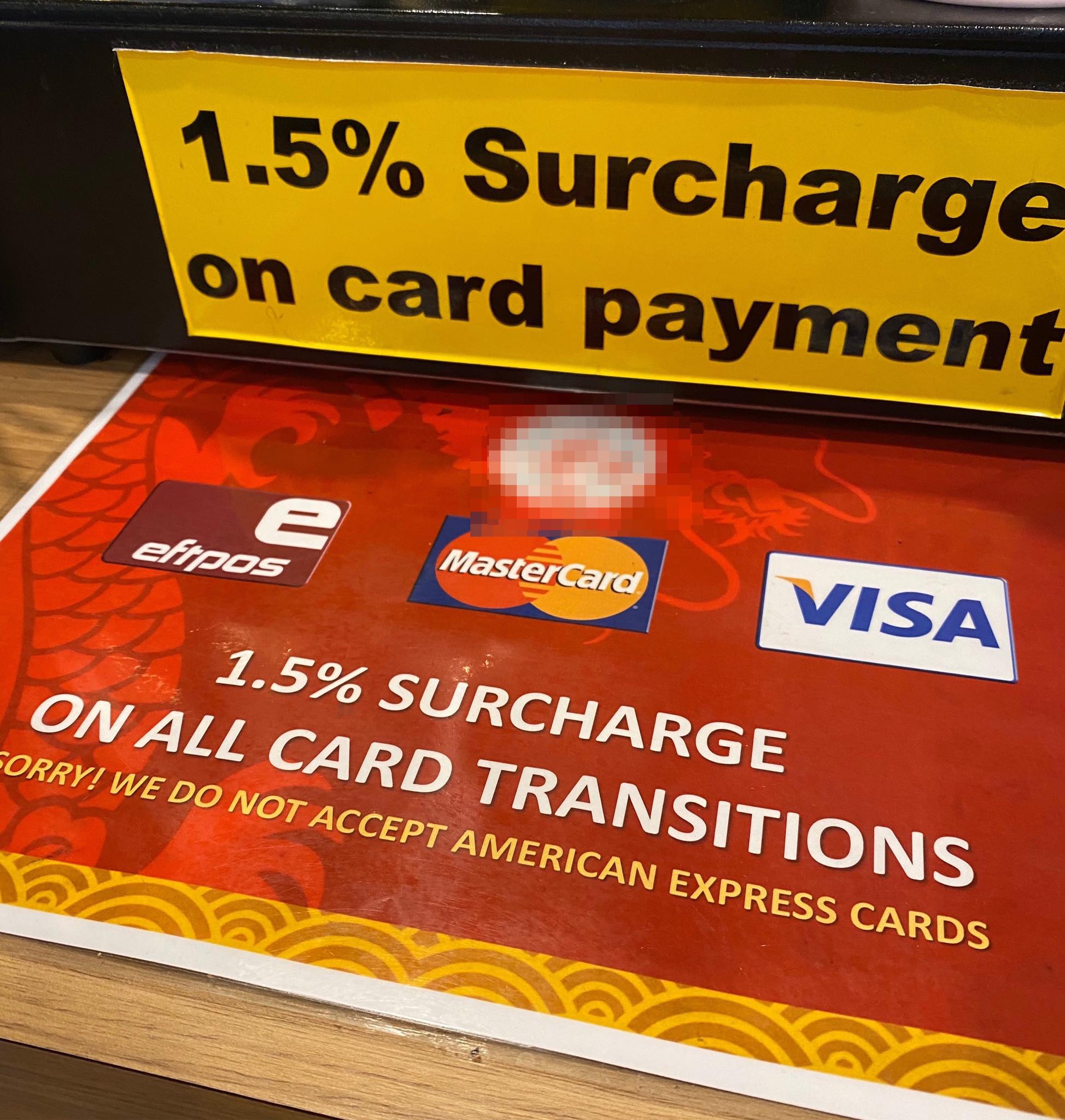Image description: A sign in a shop says ‘one point five percent surcharge on card payment’.
By Ei Hnin
For me, cash has a more personal feel than card. As a kid, filling up my piggy bank always felt like one of my big achievements. I have always liked the idea of keeping money separate, in different bags and hidden (mostly from myself, to avoid overspending). When I don’t see it, I don’t use it. I still keep the envelope of pocket money I got for winning a competition and getting good grades. It feels like a jackpot whenever I find money I’ve hidden from my childhood.
Growing up in a country where cash is widely-used, I was never confident in using cards or mobile banking. They just didn’t seem reliable. Part of me worried about the security, due to unstable internet connection, and my lack of trust in local banks; there was always a chance of my information being stolen, or of the card being lost. The only times I would use card would be in situations such as online shopping and emergency use while travelling.
Using cash influenced my choice of accessories as well. Mini Bags were never really my go-to, though I found them cute. I would opt for a wallet within a larger bag, which was heavier. Without it, my bag resembled the aftermath of a hurricane, and it would take me hours to find and count the notes in front of the cashier. Transferring money was a hassle, as I had to go to banks and wait for hours – just for a simple transaction. Regardless, I was accustomed to using cash in my daily life.
It was not long ago that I started using card for the majority of my purchases. I would say it’s mostly because I moved here, to Perth. I guess I have more trust in banks here, although some of you would debate me on the merits of that. I can now easily split bills between friends without worrying about rounding up the price. Money transfer is also easier; I no longer need to carry a heavy wallet – a card holder or phone case does the trick.
Furthermore, cards are known to be more environmentally friendly than paper notes – despite being made from polyvinyl chloride (PVC) – due to their durability. They are also more hygienic than paper money, which can carry more germs than the household toilet. In fact, I came across an article the other day about the Chinese government’s plan to go cashless in a bid to tackle the COVID-19 virus. This is because the virus can end up on paper money, and live there for days.
Still, digital currency is not without its flaws. Personally, I’ll admit, I have been spending more than I used to, though I’m not sure if I should blame it on the shops or the card. When I use physical notes, I know if I have over- or under-spent because, I can see it in my wallet. The convenience of card makes me spend more easily than I would using cash.
The proliferation of digital currency also calls into question people’s generosity. I was once volunteering for a charity event where we had to collect donations around the city. Most people were nice and happy to contribute. However, some missed the opportunity because they weren’t carrying cash on them – or perhaps they just used it as an excuse.
A final note on the cash versus card debate: we are at a transition point as card-use outpaces cash transactions. I went to a restaurant at Broadway Fair the other day for lunch, and after browsing the menu, I decided to order my usual Szechuan pork. I went up to the cashier to find that they would only accept cash if a certain amount was reached – and I totally forgot to bring cash! So, I had to order a side I didn’t need. Unfortunately, some restaurants now also charge extra for card payments.
Despite the significant shift towards card transactions, there are some situations where we still need to carry cash. I remember awkwardly laughing with my friend when she told me about the time she was thrown out of the bus because she didn’t bring cash.
Dear reader: electronic payments and cards are favourable for a number of reasons. They are convenient, and – perhaps importantly in the current climate – you are far less likely to contract COVID-19 from using them than you are from handling notes.
That being said, I understand the sentimental attachment to cash, and the boss-like feeling that comes with holding a wad of it – physical cash is not easily trumped.
Ei is here to waste her time and money on a degree.
Image courtesy of Ei Hnin

